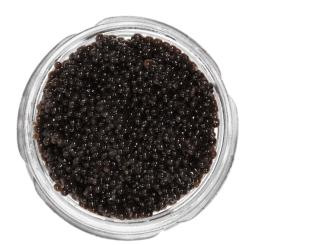
Is the Word Hangover Derived from Hungover, Drunken Sailors Sleeping on Ropes?
There is no evidence to support the claim that the word "hangover" was derived from drunken sailors sleeping on ropes. The word "hangover" first appeared in English in the early 1700s, and it is thought to have come from the Dutch word "hangover" which means "to hang over." This suggests that the word originally referred to a feeling of being hungover, or feeling unwell after drinking too much alcohol.
The viral text on Social media reads as:
The lowest form of accommodation in Victorian England was access to bend over a rope for the night at the price of a penny. Usually used by drunken sailors who had spent all their money drinking. It's said to be the origin of the term hungover.
The theory that the word "hangover" came from drunken sailors sleeping on ropes is likely a folk etymology. A folk etymology is a popular explanation for the origin of a word that is often incorrect. In this case, the folk etymology may have arisen from the fact that sailors are often known to drink heavily, and they may have sometimes slept on ropes while drunk. However, there is no evidence to suggest that this is how the word "hangover" came into being.
The most likely explanation for the origin of the word "hangover" is that it comes from the Dutch word "hangover." This theory is supported by the fact that the word "hangover" first appeared in English in the early 1700s, which is around the time that the Dutch were making contact with England.
So, while it is possible that the word "hangover" was inspired by drunken sailors sleeping on ropes, there is no evidence to support this claim. The most likely explanation is that the word comes from the Dutch word "hangover."
What is Hangover
A hangover is a group of unpleasant physiological and psychological effects usually following the consumption of alcohol, such as wine, beer, and liquor. Hangovers can last for several hours or for more than 24 hours. Typical symptoms of a hangover may include headache, drowsiness, concentration problems, dry mouth, dizziness, fatigue, gastrointestinal distress (e.g., nausea, vomiting, diarrhoea), absence of hunger, light sensitivity, depression, sweating, hyper-excitability, irritability, and anxiety.
The causes of hangovers are not fully understood, but they are thought to be due to a combination of factors, including dehydration, electrolyte imbalance, inflammation, and changes in neurotransmitter levels.
There is no guaranteed way to prevent a hangover, but there are some things you can do to reduce your risk, such as drinking plenty of water before, during, and after drinking alcohol; eating before and during drinking; and avoiding sugary drinks.
If you do experience a hangover, there are some things you can do to relieve your symptoms, such as drinking fluids, getting rest, taking over-the-counter pain medication, and eating bland foods.
It is important to note that drinking alcohol can be harmful to your health, and even moderate drinking can increase your risk of developing chronic diseases, such as liver disease, heart disease, and cancer. If you are concerned about your drinking, talk to your doctor.
What is the main cause of a hangover?
The exact causes of hangovers are not fully understood, but they are thought to be due to a combination of factors, including:
- Dehydration: Alcohol is a diuretic, which means it causes you to urinate more frequently. This can lead to dehydration, which can cause headaches, fatigue, and dry mouth.
- Electrolyte imbalance: Alcohol can also disrupt the balance of electrolytes in your body. Electrolytes are minerals that help regulate many important bodily functions, such as fluid balance, blood pressure, and muscle contraction. When electrolytes are out of balance, it can lead to a variety of symptoms, including headaches, muscle cramps, and fatigue.
- Inflammation: Alcohol can also cause inflammation in the body. Inflammation is a natural immune response, but it can also be a cause of pain and discomfort.
- Changes in neurotransmitter levels: Alcohol can also affect the levels of neurotransmitters in the brain. Neurotransmitters are chemicals that transmit signals between nerve cells. When neurotransmitter levels are out of balance, it can lead to a variety of symptoms, such as headaches, anxiety, and irritability.
In addition to these factors, other things that may contribute to a hangover include:
- The type of alcohol consumed: Different types of alcohol can have different effects on the body. For example, drinks that are high in congeners, which are byproducts of fermentation, are more likely to cause a hangover.
- The amount of alcohol consumed: The more alcohol you consume, the more likely you are to experience a hangover.
- How quickly you drink the alcohol: Drinking alcohol quickly can lead to a higher concentration of alcohol in your blood, which can increase your risk of a hangover.
- Your individual metabolism: Some people are more sensitive to the effects of alcohol than others. This means that they are more likely to experience a hangover, even if they drink the same amount of alcohol as someone who is not as sensitive.
There is no guaranteed way to prevent a hangover, but there are some things you can do to reduce your risk, such as:
- Drinking plenty of water before, during, and after drinking alcohol: This will help to prevent dehydration.
- Eating before and during drinking: This will help to slow down the absorption of alcohol into your bloodstream.
- Avoiding sugary drinks: Sugary drinks can worsen dehydration.
- Taking breaks from drinking: Drinking alcohol in moderation is less likely to cause a hangover than drinking a lot of alcohol in a short period of time.
- Knowing your limits: If you know that you are sensitive to the effects of alcohol, it is best to drink less.
If you do experience a hangover, there are some things you can do to relieve your symptoms, such as:
- Drinking fluids: This will help to rehydrate your body.
- Getting rest: This will help your body to recover.
- Taking over-the-counter pain medication: This will help to relieve headaches and other pain.
- Eating bland foods: This will help to settle your stomach.
It is important to note that drinking alcohol can be harmful to your health, and even moderate drinking can increase your risk of developing chronic diseases, such as liver disease, heart disease, and cancer. If you are concerned about your drinking, talk to your doctor.



























